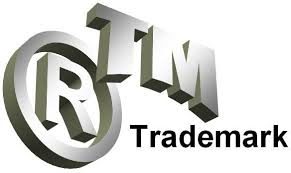On 1st of Nov 2019, the forth amended Trademark Law of PRC took effect officially. Some long-term “headaches” for overseas corporations are addressed in this updated law.
The highlights are as follow:
1. Malicious squatting will be cut down in multiple ways.
For quite a while now, trademark malicious squatting has been a nightmare for many overseas entities intending to do business in China. More often than not, when these companies started their adventures in China, they found not only their brands, but also some similar brands, or even the Chinese transliteration of their brands, had been registered by someone already. As a result, there were very few options left: either they “buy” their brands back at an astonishingly expensive price, or they file a series long-lasting lawsuits to win it back (check our previous post How to Get Back My Trademark in China? ). The only legal ground they could count on were the provisions in article 44 of the Trademark Law: apply to invalidate the registered trademark.
However, in practical court hearings, they found it was very difficult to get a positive outcome unless their brands had a strong name recognition, locally.
The new amendments have been put in place to address this and other issues.

According to Article 4 of the updated Trademark Law: “Any application for trademark registration that is malicious and is not filed for the purpose of use shall be rejected.”
The reviewers of trademark registration are granted rights to reject any malicious application in the initial review stage. In article 19, it also stipulates that the trademark application agent has a duty to review to consider if a trademark application is malicious and shall not accept the entrustment to proceed if deemed a malicious trademark application. Furthermore, malicious squatting is one of the reasons to file an objection or invalidation before or after a trademark certificate is granted, based on the provisions in Article 33 and 44. In other words, the updated Trademark Law is intended to combat malicious squatting in initial review procedure, application agency procedure, application objection and trademark invalidation procedure.
Of course, how this provision of “trademark registration that is malicious and is not filed for the purpose of use” is applied in practice must be clarified by relevant implementing regulations or judicial interpretation. Generally speaking, malicious squatting should refer to any application of identical or similar trademark which:
1. Is owned by others;
2. Has some popularity;
3. In a category far beyond the applicant’s own scope of business.
2. Malicious registration and litigation will be punished.
Article 68 of the updated Trademark Law provides punishment for people who violate the provisions in Article 4 and Article 19. It also provides that: “Whoever maliciously applies for trademark registration shall be subject to a warning, a fine, or any other administrative punishments, as the case may be; and whoever maliciously lodges a trademark lawsuit shall be penalized by the People’s Court according to law.”
3. More compensation for trademark infringement.
Another highlight of this amendment is the increase of monetary compensation for trademark infringement. According to Article 63 of the amended Trademark Law, “For malicious infringement of exclusive rights to use trademarks, in serious cases, the compensation amount shall be determined in accordance with the aforesaid method based on one to five times of the determined amount,” while the original provision provides “one to three times” of the determined amount.
Where it is difficult to determine the actual losses suffered by the trademark owner due to the infringement or the gains derived by the infringer from the infringement or the licensing fee of the registered trademark, the Court shall rule on a compensation amount of not more than RMB 5 million based on the extent of the infringement, while the original provision stipulate a compensation of “not more than RMB 3 million”.
Useful link:
TRADEMARK OFFICE OF NATIONAL INTELLECTUAL PROPERTY ADMINISTRATION, PRC


